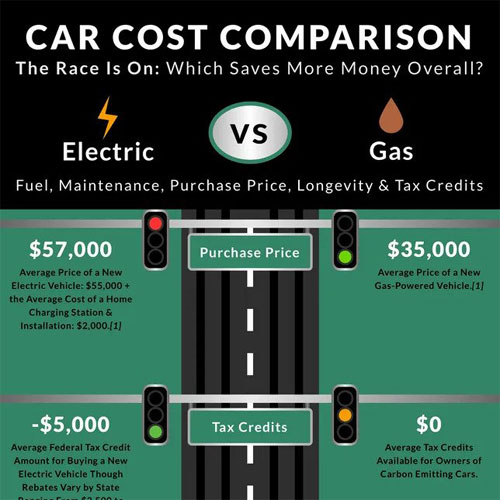The Auto Industry's Standoff: Dealers Vs. Electric Vehicle Regulations

Table of Contents
Dealers' Resistance to EV-Specific Regulations
The transition to electric vehicles is presenting significant hurdles for car dealerships, many stemming from existing regulations and the financial implications of adapting to the new technology.
Franchise Laws and Their Impact
Existing franchise laws, designed to protect the established business models of car dealerships, are proving to be a major obstacle for manufacturers pushing for direct-to-consumer EV sales. These laws often grant dealerships significant control over sales and pricing strategies, limiting manufacturers' ability to implement innovative sales models tailored to the EV market.
- Many franchise agreements restrict manufacturers from setting prices directly for EVs, hindering their ability to compete on price with direct-to-consumer brands.
- Dealerships often hold exclusive rights to sell specific brands within a defined geographical area, limiting the expansion of manufacturer-owned showrooms or direct sales initiatives.
- Numerous legal battles are currently underway between manufacturers and dealerships contesting the interpretation and application of franchise laws in the context of EV sales.
Investment Concerns and Profitability
Adapting to the EV market requires substantial financial investment from dealerships, raising concerns about profitability and return on investment.
- The high upfront costs of installing EV charging infrastructure are a major deterrent for many dealerships, especially smaller ones with limited resources.
- Unlike the substantial government subsidies often available for EV purchases, support for dealerships upgrading their facilities to accommodate EV sales and servicing is often lacking.
- Dealerships worry about potentially reduced profit margins on EV sales compared to internal combustion engine (ICE) vehicles due to the lower frequency of required maintenance and repairs.
The Role of Service and Maintenance
The shift to EVs also presents challenges to the traditional service and maintenance revenue stream for dealerships.
- Electric vehicles have significantly fewer moving parts than ICE vehicles, potentially leading to a substantial reduction in the frequency of required repairs and maintenance.
- Dealerships need to invest in specialized training and equipment to service EV components, representing an additional financial burden.
- The potential decrease in service revenue could significantly impact the overall profitability of dealerships, particularly if they are heavily reliant on after-sales service.
Manufacturers' Push for Direct Sales and EV Adoption
Facing the urgent need to accelerate EV adoption, manufacturers are increasingly seeking ways to bypass traditional dealership networks and sell EVs directly to consumers.
Bypassing Dealerships for Increased Control
Manufacturers see direct-to-consumer sales models as a way to gain greater control over their brand image, pricing, and sales strategies, crucial for a successful EV market penetration.
- Tesla's direct sales model has become a prime example of a successful, albeit controversial, alternative to the traditional dealership model.
- Many other manufacturers are experimenting with direct sales options, including online ordering and delivery, pop-up showrooms, and company-owned retail spaces.
- The legal challenges faced by manufacturers adopting these strategies highlight the inherent tensions between the traditional dealership system and the new EV paradigm.
The Need for Accelerated EV Adoption
The pressure to accelerate EV sales is immense, driven by both governmental regulations and consumer demand.
- Governments worldwide are imposing increasingly stringent emission regulations, pushing manufacturers towards higher EV sales targets.
- Consumer preference for electric vehicles is steadily growing due to concerns about environmental impact, running costs, and technological advancements.
- Meeting these targets and satisfying the growing consumer demand necessitates a significant expansion of the EV market, forcing manufacturers to explore new approaches.
Innovative Sales and Service Models
Addressing the concerns of both manufacturers and dealerships, innovative sales and service models are emerging that aim to blend the advantages of both direct-to-consumer sales and the traditional dealership network.
- Hybrid models, combining online sales platforms with physical showrooms and service centers, are gaining traction.
- Partnerships between manufacturers and dealerships, offering incentives for investment in EV infrastructure and training, may offer a pathway to collaboration.
- New service models, such as mobile service units and subscription-based maintenance programs, could address the reduced maintenance needs of EVs.
The Future of the Automotive Industry and the Role of Government
The ongoing standoff between dealerships and manufacturers will likely require government intervention to navigate this critical transition and foster a healthy EV market.
Government Intervention and Policy
Governmental policies play a crucial role in shaping the future of the automotive industry and resolving this conflict.
- Policies incentivizing EV adoption, such as tax breaks and subsidies, are essential but need to consider supporting dealerships' adaptation efforts.
- Revisiting franchise laws to allow manufacturers greater flexibility in their sales strategies, while safeguarding the interests of dealerships, is a complex but crucial task.
- Government programs providing financial assistance for dealerships to invest in EV infrastructure and training could accelerate the transition while mitigating financial risks.
Potential Scenarios and Outcomes
The outcome of this standoff will significantly impact the future of the automotive industry, leading to several possible scenarios.
- A complete shift towards direct-to-consumer sales is possible, potentially displacing many traditional dealerships.
- Compromise solutions, involving innovative hybrid models and collaborative partnerships, may emerge, maintaining a role for dealerships in the EV market.
- The employment landscape within the automotive industry will undoubtedly be affected, requiring retraining and reskilling initiatives to address the shifting needs of the EV market.
Conclusion: Navigating the Electric Vehicle Revolution
The tension between car dealerships and electric vehicle regulations represents a critical juncture in the automotive industry's transition to sustainable transportation. Finding a solution that balances the needs of manufacturers, dealerships, and consumers is crucial for a smooth and successful transition to an electrified future. Understanding the complexities of this debate surrounding electric vehicle regulations and their impact on the automotive industry is paramount. Stay informed and engage in the conversation to ensure a smooth transition to an electrified future, shaping a robust and sustainable automotive landscape.

Featured Posts
-
 Report Jayson Tatum Suffers Bone Bruise Questionable For Game 2
May 09, 2025
Report Jayson Tatum Suffers Bone Bruise Questionable For Game 2
May 09, 2025 -
 Anchorage Arts Scene Local Coverage Deserves Recognition
May 09, 2025
Anchorage Arts Scene Local Coverage Deserves Recognition
May 09, 2025 -
 Young Thugs New Album Uy Scuti Expected Release Date And Tracklist Predictions
May 09, 2025
Young Thugs New Album Uy Scuti Expected Release Date And Tracklist Predictions
May 09, 2025 -
 Champions League Final Preview Hargreaves Insight On Arsenal Vs Psg
May 09, 2025
Champions League Final Preview Hargreaves Insight On Arsenal Vs Psg
May 09, 2025 -
 Bitcoin Madenciligi Azalan Karlilik Ve Gelecegi
May 09, 2025
Bitcoin Madenciligi Azalan Karlilik Ve Gelecegi
May 09, 2025
